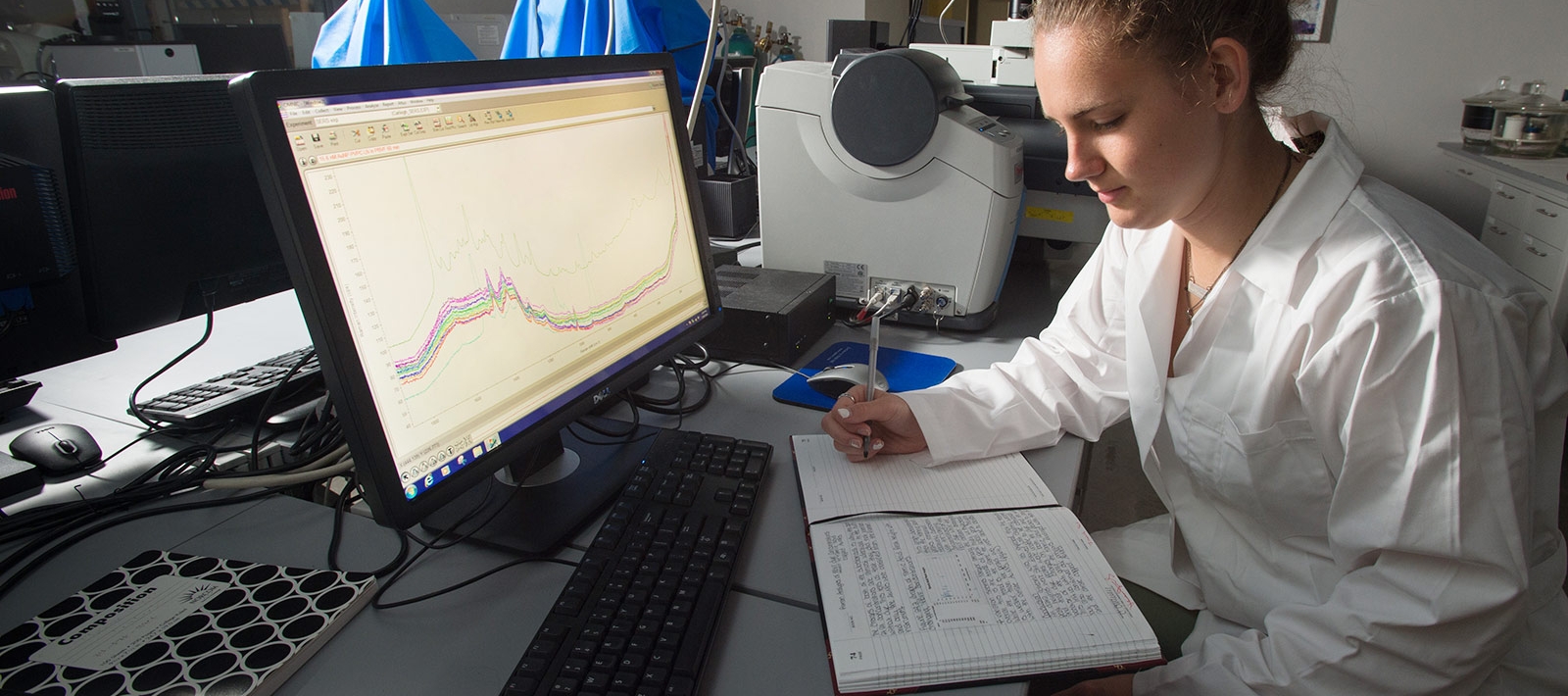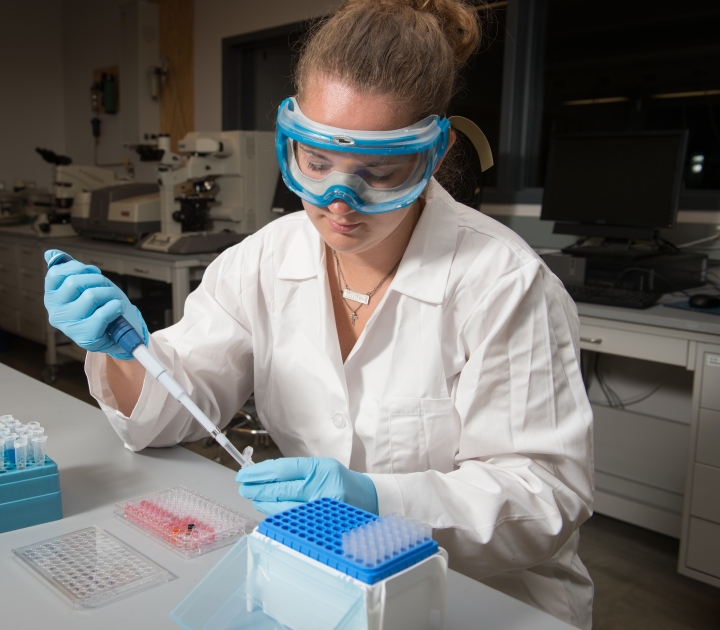
About Forensic Chemistry
Our forensic chemistry program offers rigorous training in the theories and practical aspects of chemistry with a focus on analytical techniques. The classwork contributes to the development of both the practical aspects of forensic practice, as well as the training of future forensic practitioners. We prepare each student individually for the rigors of forensic analyses, research, and legal mandates.
In today’s world, textbooks are only a part of the information that can be used to enhance one’s knowledge. Students in this program also need to be open-minded, ethical, adaptable, and able to develop critical thinking skills to ensure success in the continually evolving field of forensic chemistry.
A master’s in forensic chemistry will prepare you for a number of careers where your expertise can help solve crimes, aid in public safety, or even protect the environment. This two-year graduate program also meets the requirements for certification by the American Chemical Society and fully prepares students to enter a professional career not only in forensic science, but also in analytical chemistry.
Degree Information
About 90 percent of forensic chemists graduates work in laboratories associated with a federal, state, or local police departments; medical examiner's offices and morgues; government agencies such as the FBI; public and private universities; hospitals; quality control testing laboratories; or law firms. There is also a growing number of private labs that carry out forensic analyses. According to the survey of the American Academy for Forensic Sciences (AAFS), more than 10,000 job opportunities in the field of forensic science are expected over the next decade to address an expanding case backlog.
Although employment rates will differ regionally and depend on national and statewide funding, local populations and state crime rates, employment opportunities will always exist. The expected employment opportunities for forensic scientists can, in part, be driven by the continued scientific and technological advances. New methods and instrumentation for the chemical/biological sciences have created unprecedented and revolutionary opportunities to collect and examine criminal evidence. This has created backlogs in forensic laboratories, particularly in DNA analyses. Other areas in which forensic chemistry majors can seek employment include:
- Firearms Analysis
- Forensic Academia/Administration
- Geology/Soil Analysis
- Government Forensics
- Materials Science
- Medical Examination
- Mortuary Science
- Toxicology
Phi Lambda Upsilon: This is a national honor society for all chemistry students. Admission is based on specified criteria of academic achievement.
Iota Sigma Pi: This is a national honor society for women in chemistry. Undergraduate and graduate chemistry students who meet specified criteria of academic achievement are eligible for membership.
Professional Organizations: Our department is professionally affiliated with:
- The American Academy of Forensic Sciences
- The American Chemical Society
- The National Academy of Sciences
- The Royal Society of Chemistry, and World Science.
Chemistry/Forensics Club: This club, open to all students with an interest in forensic chemistry, holds chemistry-related activities both on and off-campus throughout the year.
Criminal Justice Club (CRJ Club): The purpose of the Criminal Justice Club is to build unity among members and to educate all Buffalo State students on concerns of crime and safety.
Your success in our forensic chemistry program can benefit greatly from forensic internships, volunteer programs, and research programs during your time in school. Such opportunities can provide you with an introduction to the forensic careers available and help you get hands-on experience working beside an experienced crime scene investigator. Students have interned in forensic laboratories in many locations including:
- Erie County Central Police Services
- Erie County Medical Examiner’s Office
- Niagara County Sheriff's Office
While most student internships occur in forensic laboratories in New York State, we have had students intern in Washington D.C., Philadelphia, and Ontario, Canada. Analytical Chemistry and Instrumental courses are required, so the student may make an appointment with the instructor any time after their junior year and when they are on their way to fulfilling the prerequisites.
Academic Rigor
Our program includes a high-quality and comprehensive curriculum in which students can acquire the knowledge, skills, and experiences necessary for success from faculty with plenty of field experience.
Hands-on Experience
Courses within the forensic chemistry major integrate chemistry, biology, physics, and mathematics with research and hands-on experience.
State-of-the-Art Facilities
The renovated Science and Mathematics Complex includes a 96,000-square-foot addition with state-of-the-art laboratories and classrooms chemistry majors use.
Small Class Size
Forensic chemistry classes average 10 to 15 students, so that each student receives highly personalized attention.
Research Opportunities
Undergraduates have the unique opportunity to gain knowledge and useful experience by undertaking research with faculty and staff.
Scholarships
We offer scholarships specifically for chemistry and forensic chemistry majors, including the Millacci-Brock Scholarship. Many other scholarships opportunities through the college are available as well.
Faculty from the Field
Forensic chemistry faculty bring real-world experience from such organizations as the Niagara County Sheriff's Office Forensic Laboratory, Erie County Central Police Services, and the Erie County Health Department.
“It’s one thing to read a case out of textbook; it’s another to get hands-on experience for what you will be doing in the field.”
“I had no idea what to expect from college, but once I was introduced to the student leaders on campus, I knew that being one was something I couldn’t pass up.”

